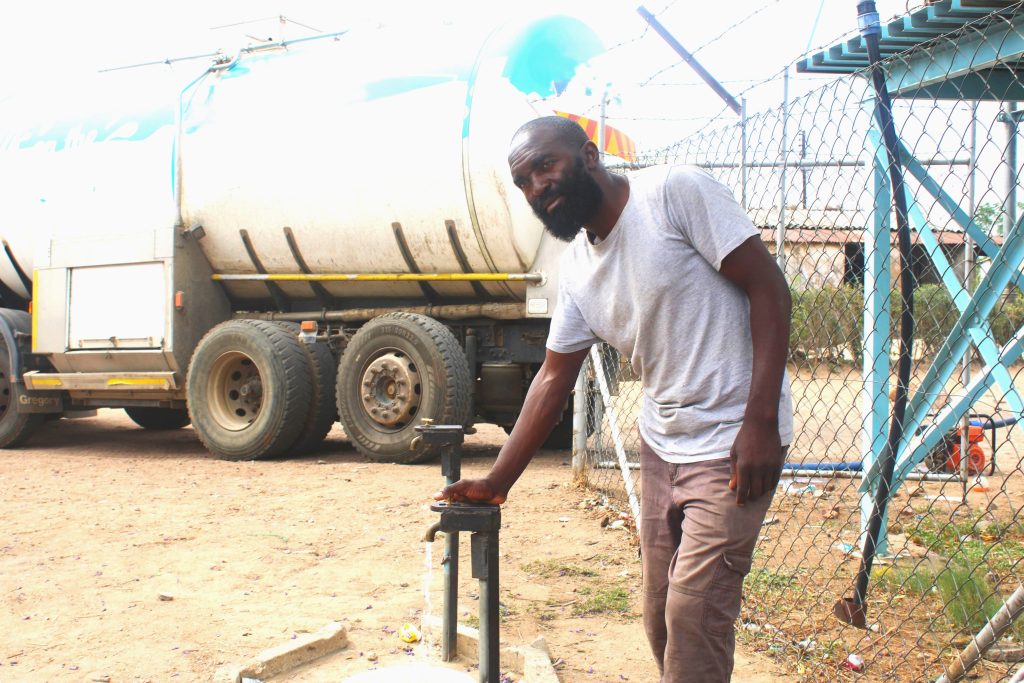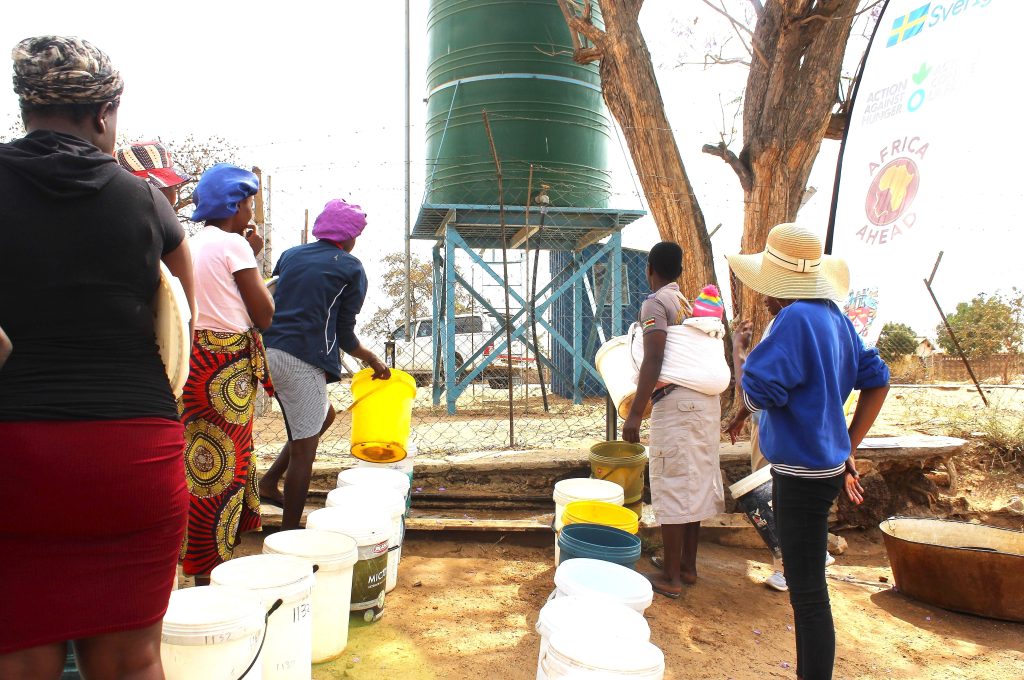by Maxine F. Kundishora
Water is life, yet in Bulawayo’s high-density suburbs water has become a rare and precious resource. Families battle daily hardships to secure even a single bucket—stretching every drop to meet their most basic needs.
Days without water have become the norm in the city as Bulawayo City Council (BCC) implemented a stiff 120-hour rationing schedule that tests residents’ resilience. With the 2023–2024 El Nino drought worsening the city’s water crisis, families are left anxiously waiting for relief from dry taps and erratic rainfall.
In Old Pumula, one of the oldest and most densely populated suburb, water scarcity has reached a critical point. Residents endure long, exhausting walks to access boreholes in neighboring areas—a taxing effort, especially for the elderly citizens.
Jabulani Sibanda, a 42-year-old resident of Old Pumula, shared, “Our council-rationed water has unpredictable times of return. We often sit with our empty buckets, hoping that eventually the taps will flow again.”
“We have elderly people who cannot walk to the boreholes as the closest one is nearly 2 kilometers away. Sadly, we end up asking the young boys in the community to fetch water for them, but it’s not sustainable. Water is life and without it, there is no life.” he said, showing sincere pain.
In a state of desperation, some residents find themselves compelled to purchase water from mobile vendors, a financially costly choice for communities that are already struggling with limited employment and business prospects.
“Our area is densely populated, with some households accommodating up to 12 people— you can imagine how much water such a home needs and many of us cannot afford the cost of mobile water vendors.” Jabulani confessed.
However, thanks to the emergency intervention funded by Sweden Sverige, implemented by Africa AHEAD in partnership with Action Contre la Faim supported the Bulawayo City Council (BCC) and revived hope in Bulawayo. Repairing a broken water trucking bowser and supplying fuel allowed the vital water trucking services to resume, cushioning the effects of the hard hit El Nino-induced drought. The intervention addressed logistical challenges that had previously halted existing water delivery services by council, disrupting the water trucking schedule.
This initiative expanded water access to 18 key sites, ensuring communities receive immediate and much-needed water relief.
Focusing on areas with critically low water levels, the project prioritized high-density suburbs, with kiosks serving as collection points for residents. In open spaces, bowsers delivered water directly into containers, alleviating the daily struggle for water access.
Some of the deliveries leveraged on the existing water kiosks established through previous projects funded by Sweden Sverige, ensuring reliable storage and periodic delivery.
While delivering immediate relief through water trucking services, the project also focused on sustainable solutions by repairing 35 boreholes in the city’s high density suburbs and establishing two piped water schemes—one in Emganwini suburb and another within Mgiqika Primary School. These efforts will provide sustainable water supply for thousands of people in the communities served.

Live in action: A water bowser decanting it’s load to ‘Tower light 43’ community kiosk, ensuring residents have access to clean and safe water for their domestic needs.
With the truck moving again, water deliveries became more consistent at the Old Pumula kiosk, popularly known as ‘Tower light 43’, bringing immediate relief and easing the burden on families who had struggled to access water.
The sporadic water deliveries had left the community in crisis. “We are honestly grateful. This is life changing. At times, we went over a week without a drop of water. In the past, water was trucked to the 10,000-litre kiosk established years ago by a local NGO. However, over time, these deliveries became increasingly inconsistent.” said Jabulani.
Thanks to the project, ‘Tower Light 43’ kiosk beneficiaries received a total of 208 water trucking trips, delivering 20 000 liters of water per trip, bringing much-needed relief to struggling residents. This transformed the daily life of many as well as the lives of children who bear the burden of travelling long distances in search of water after a long day at school.

Grateful and relieved, Jabulani fetching a bucket of clean water from the kiosk
“We are so grateful, without the project partners stepping in, the situation would have been far worse. Their intervention helped restore water delivery when we needed it the most and saved us from the spread of diseases, a common fear amongst us all,” he acknowledged.
Despite the relief brought by the water trucking services, the challenges of water scarcity persist in Bulawayo as a whole. The limited supply often leads to conflicts at the collection points.
“It is a fight for survival when the truck arrives,” he elaborated. “As the community-elected kiosk attendant, due to demand, I have tried to manage conflicts by scheduling water collection on Saturdays when most residents are available and limiting each person to five 20-liter buckets,” said Jabulani.
“While we are grateful for the water supply for domestic use, the demand is so high that it is never enough to support other needs, like gardens and other livelihood demands.” he continued. “As such, we still need a long-term solution. Under favorable climatic conditions, a borehole with a pumping system to support the kiosk would be ideal, increasing water access and eliminating the pressure on the kiosk and neighbouring boreholes.”
While the emergency intervention has mitigated the crisis for now, the story of Old Pumula is a reminder of the ongoing challenges faced by communities in many other areas in Bulawayo, where many more interventions are of paramount importance. Just like Jabulani, for the residents of Bulawayo, the hope is for a future where water is no longer a luxury, but a guaranteed resource.

